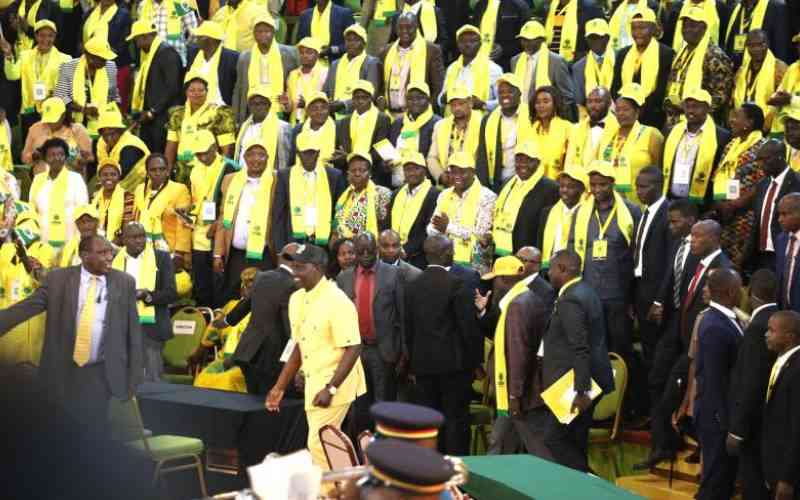×
The Standard e-Paper
Join Thousands Daily

It is a make or break for President William Ruto's United Democratic Alliance (UDA) as it prepares to hold countrywide grassroots elections that most parties have either shunned, or tried and failed.
In his quest to build a behemoth political machine that he envisages to last at least 100 years, Ruto faces a dilemma on how to deal with fringe parties that supported his presidential bid in 2022 but have refused to fold.